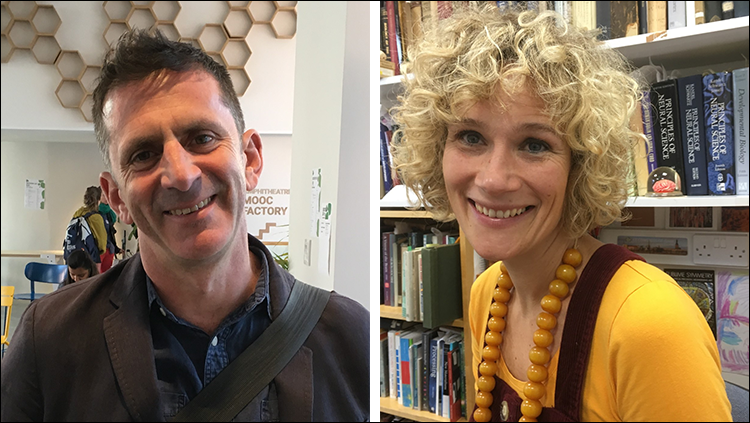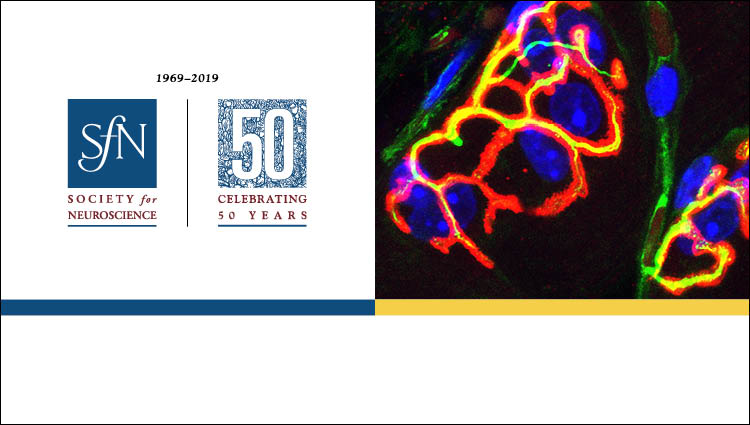Spring Council Roundup
On April 23 and 24, SfN Council met in Washington, D.C., to discuss opportunities to partner with international science organizations, further SfN’s principles of inclusion, and commemorate 50 years of scientific achievement at the 2020 annual meeting.
Sustaining Global Partnerships
The Federation of European Neuroscience Societies (FENS) recently established a new program for promoting diversity and equality in the sciences, known as the ALBA Network. The ALBA Network will disseminate best practices related to facilitating diversity in research, improve networking opportunities for underrepresented populations, create a platform where underrepresented neuroscientists may promote their careers, and emphasize success stories through a robust awards program. SfN and FENS signed a Memorandum of Understanding in 2017 to formally partner on a set of shared initiatives focused around strengthening the global scientific community, and the ALBA Network is a natural extension of this partnership. The SfN Executive Committee and Council have pledged an annual €25,000 toward this program.
The Canadian Association of Neuroscience (CAN) has worked closely with SfN over the last few years to build the foundation for an active advocacy program. CAN envisions expanding this program to include training components to inspire grassroots support, expertise and guidance from a lobbying firm, and additional efforts to increase the presence of Canadian neuroscientists on Parliament Hill. Council approved an annual commitment of $50,000 to enable the growth of CAN’s advocacy efforts to capitalize on the growing momentum of public support for science funding and covert this into governmental support.
Similarly, the SfN Mexico City Chapter has renewed its Memorandum of Understanding with SfN and is developing additional outreach resources to share the importance and wonder of neuroscience research with the public.
Fostering Inclusive Environments for Science
Scientific advancement depends on the participation of a diverse spread of voices and one of SfN’s greatest strengths is its ability to unite subsets of the field from all over the world. SfN’s Executive Committee recently approved the launch of the inaugural Science Knows No Borders (SKNB) program. SKNB will allow abstract presenters living or working in the list of countries that have been denied visas by the current administration, or who are experiencing obstacles in attaining a visa, to participate in the annual meeting remotely. Applications may be submitted through the SfN website. SfN will also be issuing a call for volunteers to facilitate the on-site execution of SKNB at Neuroscience 2019 in the coming months through its communication channels.
Advocating for Federal Support
SfN hosted its 13th annual Hill Day March 7, with 48 participants representing 24 states and six countries. The scientific community is working together to lobby Congress to increase NIH funding to $41B. The cohort completed over 80 meetings and office visits to lobby for federal support of scientific research. Rep. Jerry McNerney (D-CA) kicked off the day’s activities with a floor speech in Congress, highlighting the importance of sustained, robust funding for NIH and NSF that galvanized participants to share this sentiment throughout Capitol Hill.
Supporting Future Generations
Council was notified that National Institute of Neurological Disorders and Stroke (NINDS) awarded SfN a grant of $270,000 over three years to support its Foundations in Rigorous Neuroscience Research (FRN) training program geared around rigor and reproducibility. Through a combination of in-person workshops and online programming tailored to scientists at all career stages, the FRN curriculum will promote awareness of barriers and solutions to practicing rigorous and reproducible neuroscience research.
Celebrating 50 Years of Scientific Progress
SfN’s 50th annual meeting will be Neuroscience 2020 in Washington, D.C. Council and SfN’s committees are working diligently to prepare a series of activities celebrating half a century of scientific achievement and forecasting how the field will continue to evolve. Key elements of the 50th anniversary will include a podcast series examining SfN’s history hosted by SfN Past President Larry Swanson, a new History of Neuroscience essay series featuring a diverse array of luminary researchers, and a celebratory theme woven into all annual meeting events. The working group overseeing the curation of activities will ensure that SfN’s 50th anniversary reaches all subsets of the membership and yields tangible outcomes to advance the field.
Appointing SfN’s Leaders
Council reviewed the slate of committee members as proposed by the Committee on Committees (CoC), as well as nominations for new members of all business committees. CoC meets annually in Washington, D.C., to ensure all positions are populated with nominees that have exemplary academic records, demonstrated leadership abilities, and represent all aspects of diversity within in the field.
NIH Dinner
A standing tradition of the spring Council meeting is a dinner with the directors of NIH neuroscience institutes to review updates from, and discuss opportunities to align efforts in support of, the global neuroscience field. This was the 17th consecutive meeting between Council and NIH, a testament to the value NIH places in the Society’s perspective of how to best serve the scientific community. Topics discussed included the funding outlook for the incoming fiscal year, ways to bolster international collaboration in training programs, expectations for the BRAIN Initiative, opportunities to increase programming on scientific rigor, and more.






















